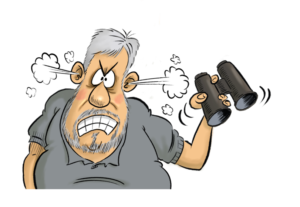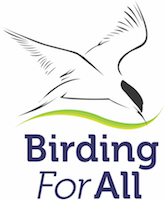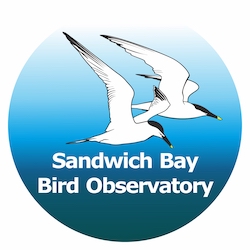This article first appeared in the October 2021 edition of Birdwatching Magazine
When I was a lad Dad used to take me fishing… on one memorable summer day he fancied pike fishing on a backwater on Kent’s River Rother. This involved a slog across half a dozen fields laden with fishing gear. I confess that I was mostly a spectator that day as he hauled in half a dozen pike and I managed an eel and one small soggy bream. The fierce heat of the June day was broken by half a dozen short, sharp showers. The walk back may have been the spark that lit the fuse in me of conservation. Halfway back to the car we spotted fish floating on the surface. At first a few tiddlers flopped about in distress, the first dead floaters soon appeared and before we reached the car the backwater’s surface was covered with dead fish. Bream bigger than I’ve ever seen before or since; specimen roach abounded, even a few mysterious carp had succumbed.
As we were loading our gear back into the old Hillman, the reason for the mass extinction hove into view. The farmer was now into the field across the road spraying out fertilizer from behind his tractor.
I didn’t know the chemistry then, but the liquid sprayed close to the river had run off into the water course with each sharp shower, de-oxygenating the water, drowning hundreds of fish.
With hindsight, I can forgive the farmer as he was probably ignorant of the carnage he caused. That lesson took a while to sink in, just like DDT that took a toll of wildlife through mass ignorance.
However, in the background then, and now, is a combination of individual avarice coupled with general phylogenetic chauvinism.
There are an increasing number of farmers and landowners who are re-planting hedges, digging ponds and setting aside land for wildlife… but not enough. We still put human needs above those of all the rest of the animal kingdom, all the time. Agri-business dominates where profit not just aces conservation, but lobbies to allow the use of known pollutants and killers. In the EU, nictinoids were banned, and the UK government made a post-Brexit pledge to uphold the ban, but now we are no longer members they are allowing the use for certain crops. Never mind, that killing bees will be the death of us, our enlightened government is allowing the use of thiamethoxam again. So much for following the science!
Scientific ‘proof’ is touted that organic food is no healthier than ‘traditionally farmed produce’. True, maybe, in the narrowest sense, it most assuredly isn’t in the wider world where the long-term effects of chemical farming and animal husbandry only comes to light years into the danger.
Who would have thought, for example, that contraceptive chemicals would end up in the food chain, still present in the ‘clean’ water discharged into rivers after sewage treatment?
Well, now there is another real and present danger, Fipronil, a very effective, and highly toxic insecticide used to de-flea our pet cats and dogs. It is now poisoning rivers across the land! Described as ‘extremely concerning’ for water insects and, of course, the fish and birds that live on those invertebrates. With an estimated 80% of the eleven million cats and ten million dogs getting indiscriminately treated with this and a nerve agent, imidacloprid, it was inevitable that it ended up in our rivers. No doubt in us too eventually.
Stop blanket treatments! It’s like taking antibiotics when you are well. Indoor cats can’t get fleas, and if your pooch ain’t scratching he doesn’t need de-fleaing!





